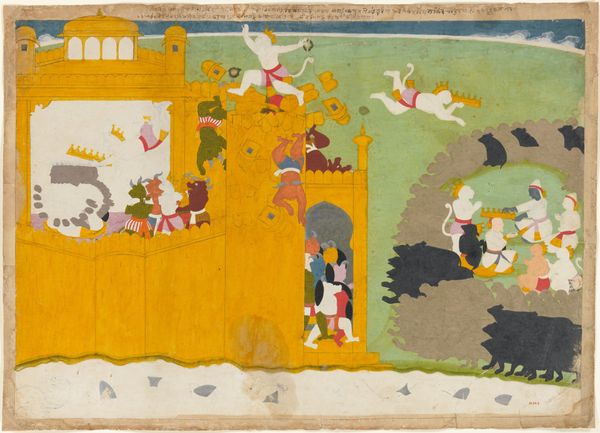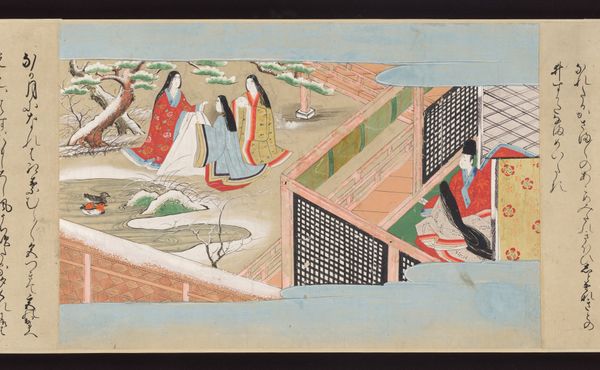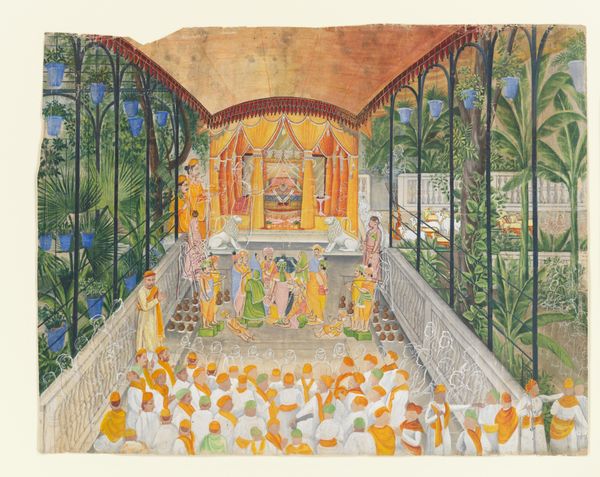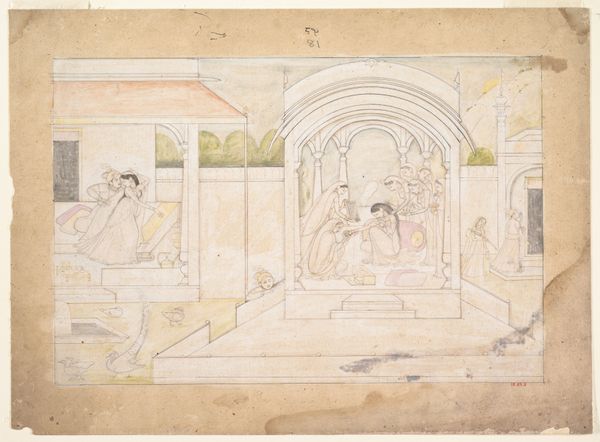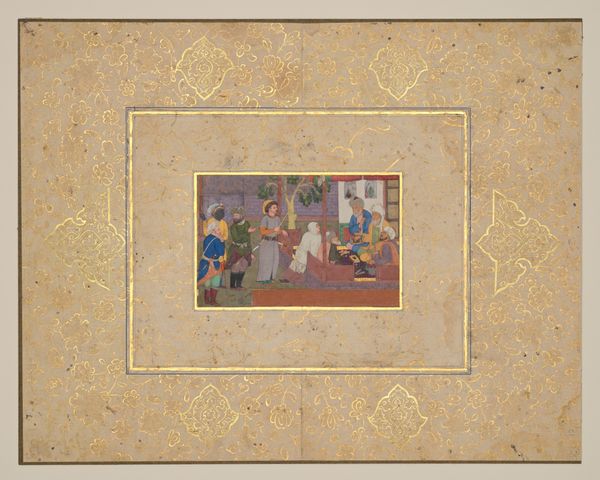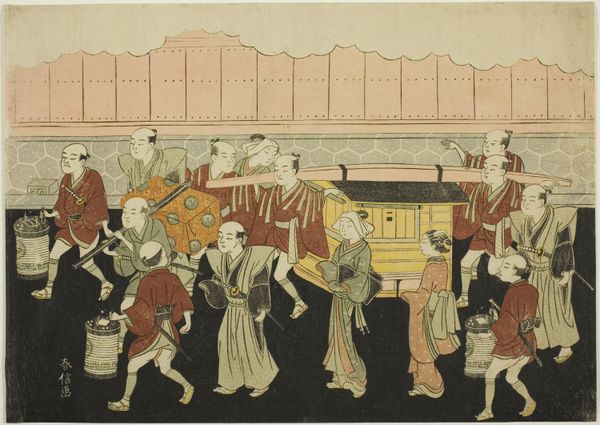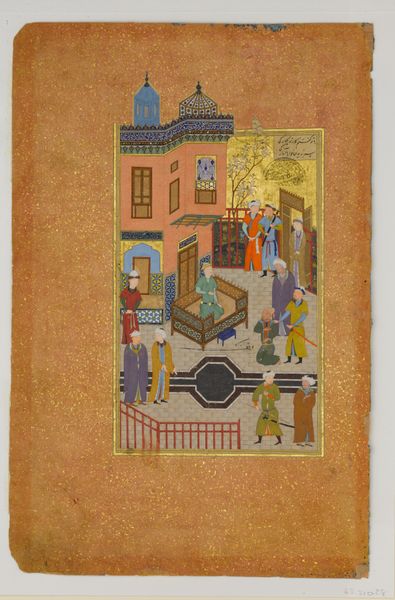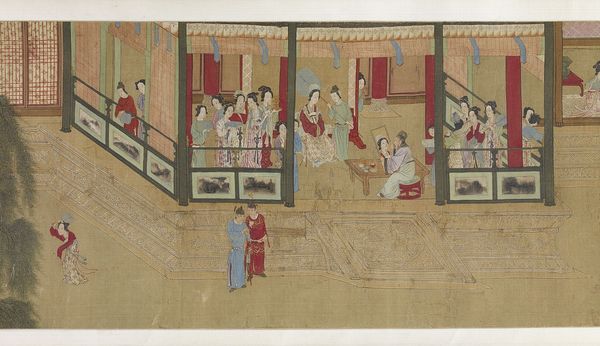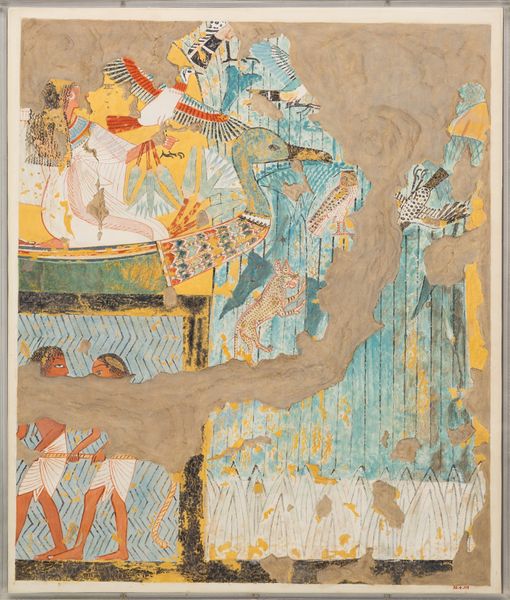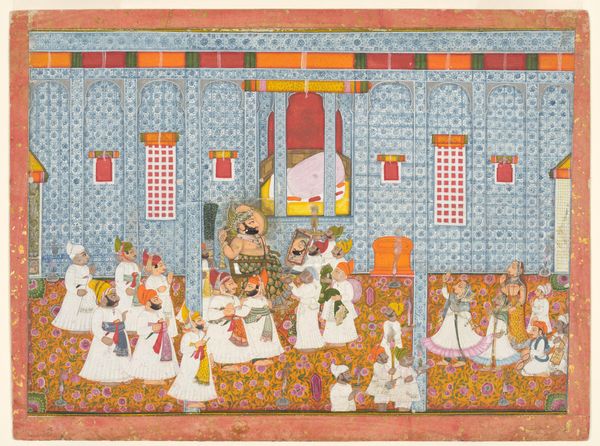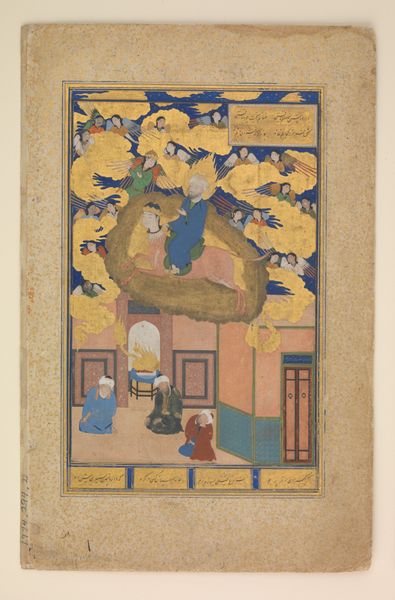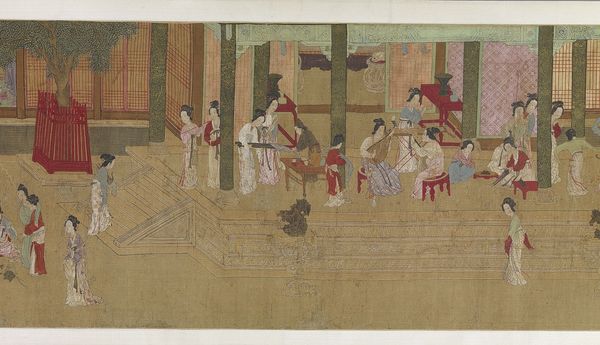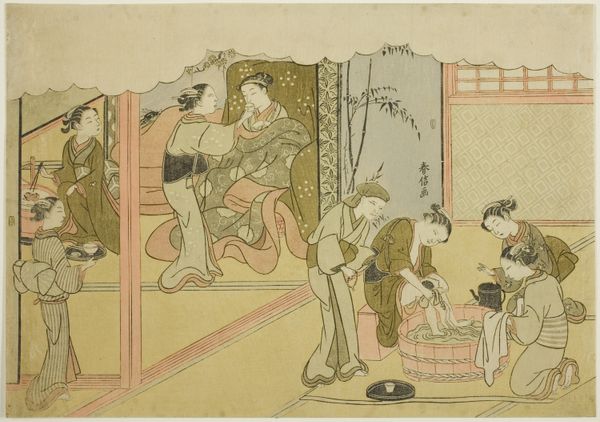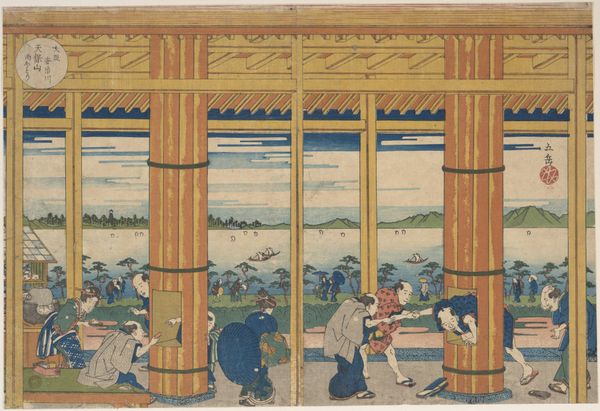
Rama and Lakshmana as Boys Assist the Sage Vishvamitra: Folio from a dispersed Ramayana series 1770 - 1790
0:00
0:00
#
aged paper
#
water colours
#
pastel soft colours
#
light earthy tone
#
asian-art
#
brown and beige
#
men
#
watercolour illustration
#
soft colour palette
#
brown colour palette
#
watercolor
#
warm toned green
Dimensions: 9 5/8 x 13 15/16 in. (24.5 x 35.4 cm)
Copyright: Public Domain
Nainsukh painted this watercolor on paper depicting a scene from the Ramayana, likely in the mid-18th century in the Punjab Hills region. This intimate scene shows the young princes Rama and Lakshmana with the sage Vishvamitra. Here, the artist has used the pictorial language of the Mughal court to tell an ancient Hindu story, creating a visual bridge between cultures and faiths. We see the scene through the architecture. There is an inside and outside. The colors, the gold leaf and the details of the faces and clothes all show the wealth of the king. The figures on the margins, and the architectural composition are all visual codes to indicate the importance of the people involved in the story. To understand this painting better, we could look at the history of the Mughal Empire and the many cultural exchanges in northern India at that time. We might also explore the patronage system that allowed artists like Nainsukh to flourish, and the role of religious narratives in shaping social values. The painting is a window into a complex world, where art, religion, and politics were deeply intertwined.
Comments
No comments
Be the first to comment and join the conversation on the ultimate creative platform.
